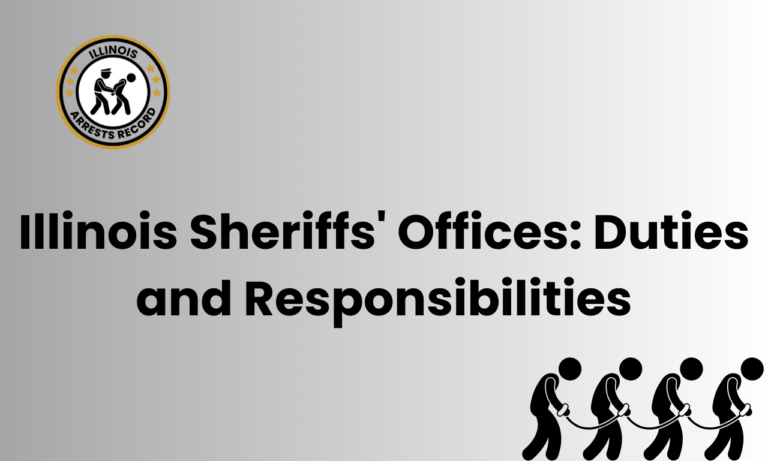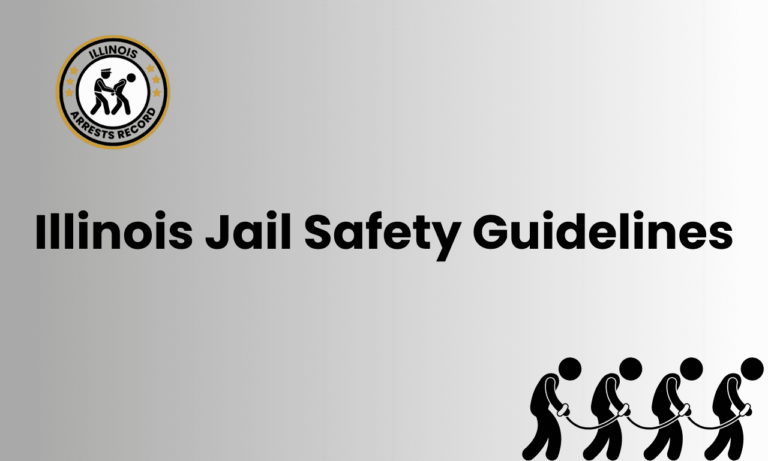Illinois Legal Rights of Inmates
Understanding the legal rights of inmates is crucial in ensuring a fair and just criminal justice system. In the state of Illinois, there are specific laws and regulations that protect the rights of individuals who are incarcerated. These rights not only provide safeguards for inmates but also contribute to the overall goal of rehabilitation and reintegration into society.
Throughout this informative guide, we will explore the various legal rights that inmates in Illinois possess. From access to medical care and legal representation to protection against abuse and discrimination, we will delve into the fundamental rights that every incarcerated individual should be aware of. By understanding these rights, both inmates and their loved ones can navigate the complex legal landscape with confidence and ensure that justice is upheld.
Access to Medical Care
Ensuring the health and well-being of inmates is a fundamental aspect of the legal rights they possess in the state of Illinois. Access to medical care is a crucial component of this, as it not only promotes the physical well-being of individuals but also contributes to their overall rehabilitation and reintegration into society.
Within the Illinois correctional system, inmates have the right to receive adequate medical treatment. This includes access to healthcare professionals, medication, and necessary medical procedures. It is essential that these medical services are provided in a timely and appropriate manner, ensuring that inmates’ health needs are met.
Additionally, the Illinois Department of Corrections has established a grievance process that allows inmates to voice their concerns regarding medical care. This process ensures that any issues or complaints regarding medical treatment are addressed and resolved in a fair and timely manner.
Legal Representation
A fair and just legal system is one that recognizes the importance of legal representation for all individuals, including those who are incarcerated. In Illinois, inmates have the right to legal representation throughout various stages of the criminal justice process.
Whether it is during initial arrest, pretrial proceedings, or court hearings, inmates are entitled to legal counsel to ensure their rights are protected and their voices are heard. This legal representation is crucial in safeguarding against any potential violations or injustices that may occur during the legal process.
Inmates should be aware of their right to request legal representation and communicate with their attorneys effectively. This includes having access to confidential meetings with their legal counsel and being provided with necessary legal documents and information.
Protection Against Abuse and Discrimination
Every individual, regardless of their incarcerated status, deserves to be treated with dignity and respect. In Illinois, there are specific laws and regulations in place to protect inmates from abuse and discrimination.
Correctional facilities must adhere to strict guidelines regarding the treatment of inmates, ensuring that they are not subjected to any form of physical, emotional, or sexual abuse. This includes providing a safe and secure environment, free from any form of violence or harassment.
Furthermore, inmates are protected from discrimination based on factors such as race, gender, religion, or disability. It is essential that correctional facilities promote a fair and unbiased environment, upholding the principles of equality and justice.
Access to Educational Opportunities
In addition to their legal rights, inmates in Illinois also have the right to access educational opportunities. Recognizing the importance of education in rehabilitation and reintegration, the state provides resources and programs to support inmates in their educational pursuits.
These programs may include adult basic education, high school equivalency courses, vocational training, and college courses. By providing inmates with the opportunity to further their education, they are better equipped to reintegrate into society and lead productive lives upon their release.
Access to educational opportunities not only benefits the individual inmate but also contributes to the overall goal of reducing recidivism rates and creating a safer community.
Visitation Rights
Maintaining connections with loved ones is crucial for the well-being of inmates and plays a significant role in their rehabilitation process. In Illinois, inmates have the right to visitation, allowing them to have contact with family and friends.
Visitation policies may vary depending on the specific correctional facility, but the overarching principle is to provide opportunities for meaningful relationships and support networks. It is important for inmates and their loved ones to familiarize themselves with the visitation rules and regulations to ensure a smooth and enjoyable visitation experience.
Visitation rights not only benefit the well-being of inmates but also contribute to their successful reintegration into society by maintaining positive connections and support systems.
FAQ’s
What legal rights do inmates have in Illinois?
Inmates in Illinois have a range of legal rights that are protected by state laws and regulations. These rights include access to medical care, legal representation, and protection against abuse and discrimination. By understanding their rights, inmates can ensure that they are treated fairly and justly within the criminal justice system.
In Illinois, inmates have the right to receive medical care while incarcerated. This includes access to necessary medications, treatments, and regular check-ups. The Illinois Department of Corrections is responsible for providing medical services to inmates, ensuring their health needs are met during their time in custody.
What legal representation do inmates have in Illinois?
Inmates in Illinois have the right to legal representation. This means that they can have an attorney represent them in legal matters such as criminal trials, appeals, and post-conviction proceedings. If an inmate cannot afford an attorney, they may be eligible for free legal assistance through organizations such as the Illinois Legal Aid.
While inmates in Illinois have the right to communicate with their loved ones, there are some restrictions in place. Inmates may be subject to monitoring and screening of their communication, including phone calls, letters, and visits. These measures are in place to ensure the safety and security of the correctional facility.
In Illinois, inmates have the right to practice their religion while incarcerated. This includes access to religious materials, participation in religious services and ceremonies, and dietary accommodations for religious beliefs. Facilities in Illinois are required to reasonably accommodate inmates’ religious practices, as long as it does not pose a security risk.







